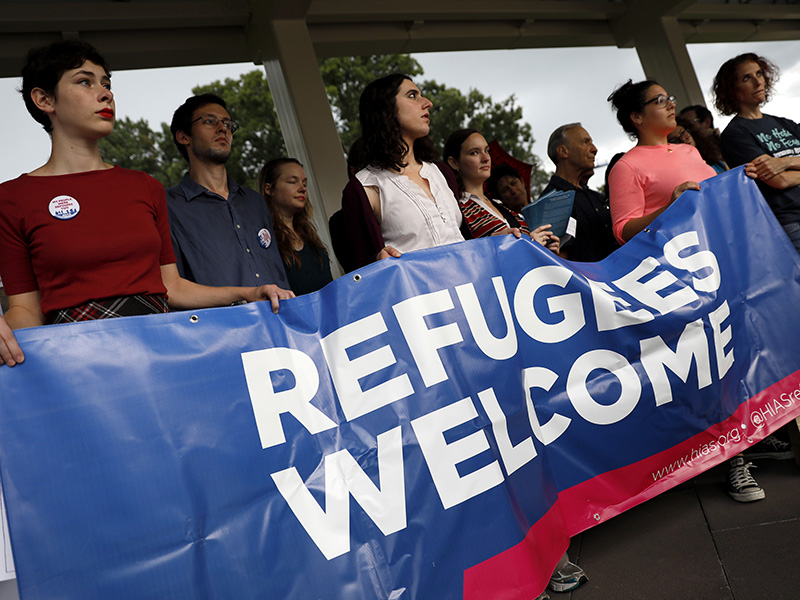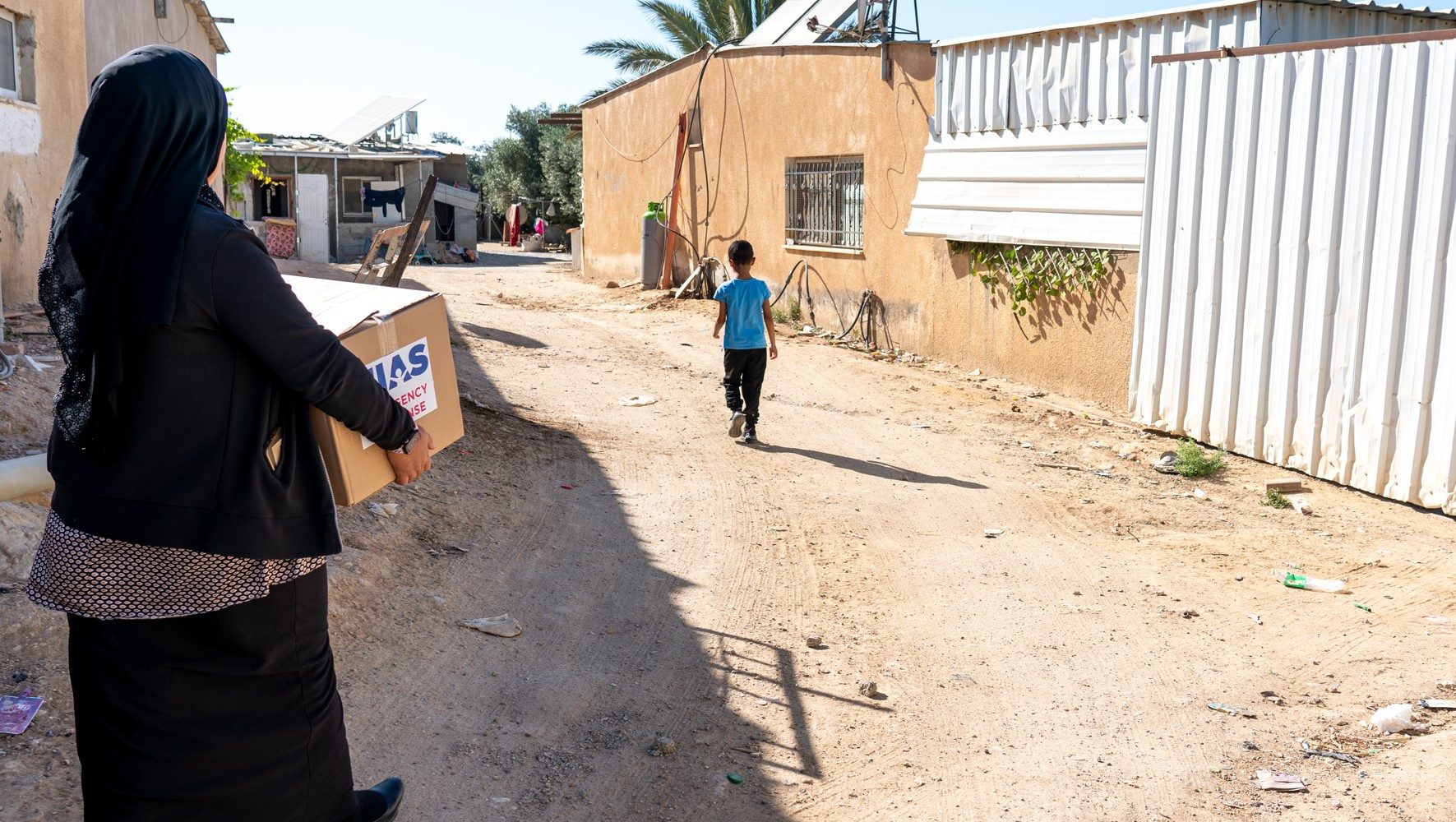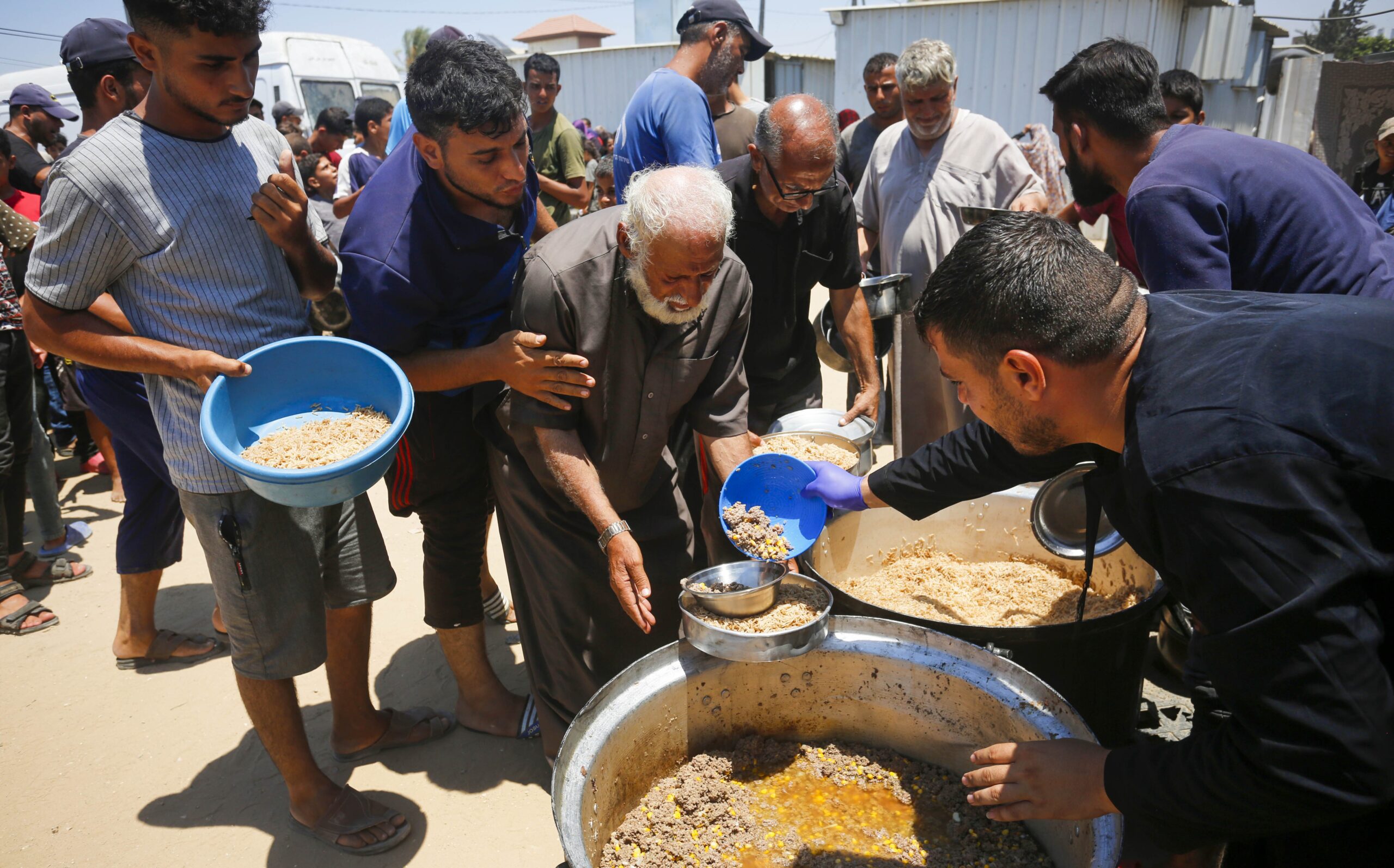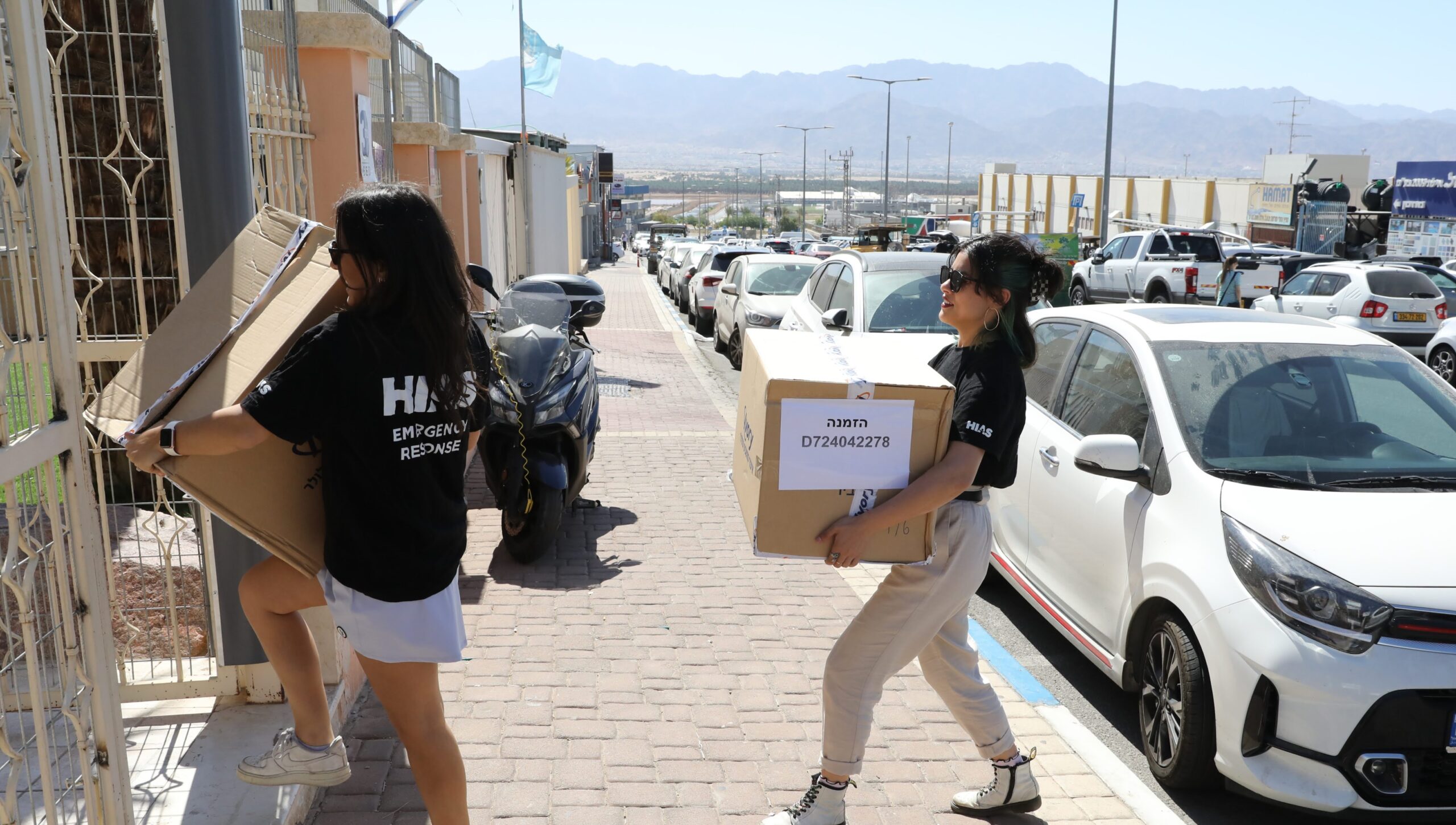The Jewish Community is Stepping Up for Refugees—Here's How
By Gabe Cahn, HIAS.org
Jun 24, 2018

Activists hold a banner during a demonstration organized by HIAS, founded as the Hebrew Immigrant Aid Society, outside the U.S. Capitol September 14, 2017 in Washington, D.C.
(Aaron P. Bernstein/Getty Images)
Since the earliest days of this administration, the American Jewish community has mobilized in support of protecting and welcoming new Americans.
Fighting each iteration of the Muslim and refugee bans, calling out inhumane practices such as separating asylum-seeking families, and doing everything in their power to create communities of welcome; American Jews are standing against the xenophobic and often cruel policies impacting refugees and asylum seekers like never before.
The direct support and advocacy is taking place each day in cities across the country. The efforts are a testament to the notion that the biblical commandment to “welcome the stranger” is more than just a cautionary tale for future generations to heed. It is a call to action: Show compassion to newcomers because we were once newcomers, too.
In recent weeks, the contrast between the Jewish value of welcome and the administration’s attacks on immigrants, refugees and asylum seekers has never been starker.
Nearly 350 national, state and local organizations have signed a letter opposing the policy, and dozens of Jewish leaders visited the southern border, protested in front of ICE headquarters in New York City and joined rallies in major cities.
In the coming days, HIAS will be working with Jewish partner organizations to lead several initiatives, including delegations to the border.
Unprecedented coalition of Jewish organizations and synagogues are now protesting outside the ICE offices today against Trump's racist immigration policies and the use of children as pawn. #familiesbelongtogether #MoralEmergency #KeepFamiliesTogether pic.twitter.com/ELUX1E0l8P
— Gili Getz (@giligetz) June 21, 2018
“I haven’t seen anything like this in this field since the first executive order came out,” HIAS President and CEO Mark Hetfield told JTA news, referring to the first Muslim ban in January 2017.
HIAS Pennsylvania, one of HIAS’ local resettlement partners based in Philadelphia, has been providing legal aid to families separated at the southern U.S. border.
Mary McCabe, an immigration attorney with the organization, says working for a Jewish organization has made her “even more aware of the need to provide a safe haven to families seeking asylum.”
“What happened in the 1930s and ’40s has had an impact on our asylum system,” she was quoted as saying in JTA.
“That’s partly why we have this asylum system. The Jewish community cares that people who are being targeted for persecution have a way to be safe because people died. I feel like I’m just stating the obvious.”
“The Jewish community is very mindful of the challenges facing refugees,” added Lee Bycel, an adjunct professor at the University of San Francisco and author of a forthcoming book on refugees in America, in an op-ed published in the Forward.
Bycel credits HIAS for inspiring other organizations to act on the refugee issue, but asks, “can we do more than we have been doing? Is this a priority?”
“Compassion is not enough,” he argues, “it will not be enough to commiserate with people risking their lives in desperate search for a haven. Policies must be in place to provide aid and home.”
Many local Jewish agencies, including several of HIAS’ current partners, first began directly providing resettlement services to refugees in the 1970s as Soviet Jews began to emigrate en masse. Not all of them continued resettling refugees once there were far fewer Jewish refugees seeking to come to the United States.
In Pittsburgh, Jewish Family and Community Services’ director of refugee and immigration services, Leslie Aizenman, together with Hetfield, spoke with Tablet Magazine about why their organizations decided to keep their doors open even after the influx of Jewish refugees from the Former Soviet Union ceased.
After the Russians came the Bosnians, Burmese, and in more recent years the Congolese, Bhutanese, Iraqis, Syrians, and a specially designated group of Afghanis who helped the U.S. military in Kabul and are at risk for retribution. “We continue to ‘welcome the stranger,’” Aizenman explained, “as we are commanded to do.”
The Jewish moral imperative is clear, said Mark Hetfield, president and CEO of HIAS...“Torah commands us 36 times to welcome the stranger,” he explained. “The repetition is interesting—maybe it’s because it’s not the most important commandment, but the easiest to forget.”
But both Aizenman and Hetfield say that the support and the capacity in the Jewish community for welcoming refugees and asylum seekers has never been stronger. As of June 22, the United States had only admitted 15,788 of the 45,000 refugees permitted before the federal fiscal year ends in three months on September 30.
“We’re capable of taking more than this,” Aizenman said.
In Dallas, Rabbi Nancy Kasten, a teacher of Jewish mindfulness and participant in multifaith and Jewish education and advocacy efforts, penned a World Refugee Day-themed op-ed for the Dallas Morning News, challenging the country to do more for those searching for safety.
“While the United States is the only home I have ever known,” she wrote, “the approach we are taking to the global refugee crisis makes me feel like a stranger in the America I love.”
“As people of faith and as Americans we are at a crossroads. Will we lead at home and abroad with intimidation, xenophobia, aggression and greed? Or will we lead with generosity, inclusiveness and hospitality?”
To learn more about refugees and the communities that welcome them, follow HIAS on Facebook, Twitter and Instagram.


